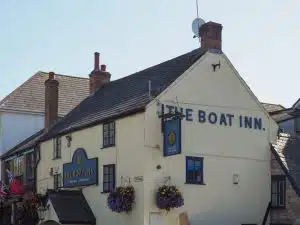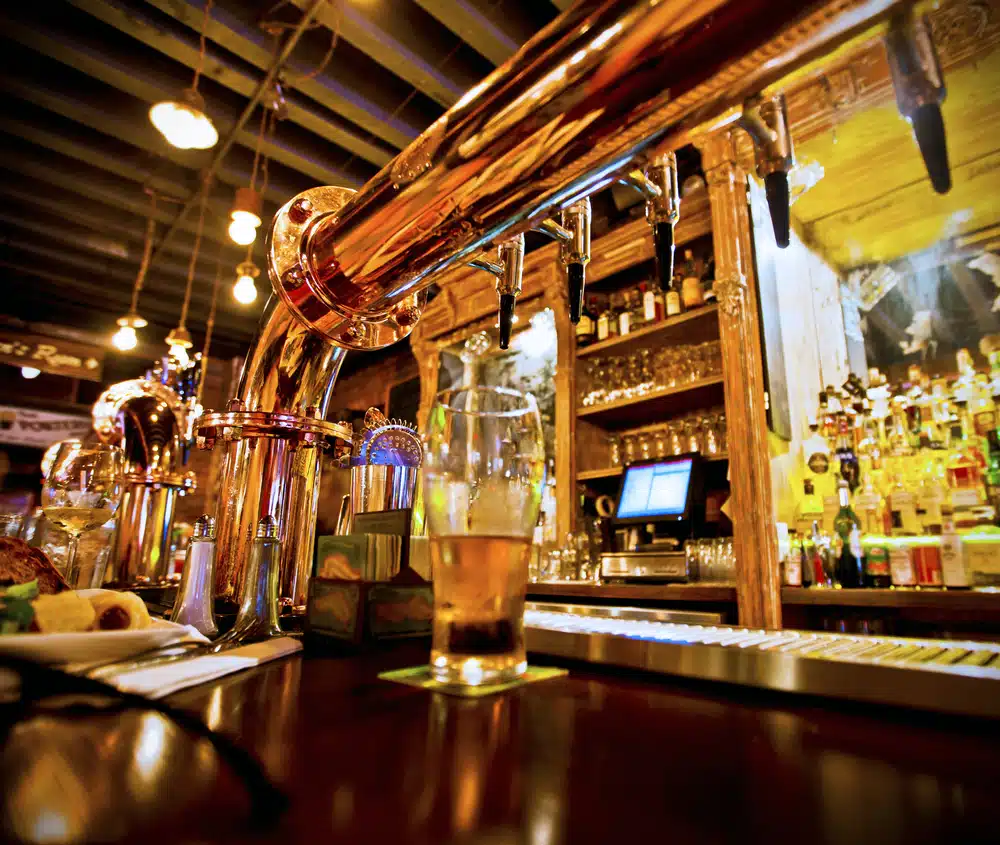
To address this problem, the UK government has introduced a number of measures, including noise abatement orders and fines for pubs that exceed noise limits. In addition, the government has also launched a campaign urging pub owners to take steps to reduce noise levels. While these measures have had some success in reducing noise pollution from public houses, the problem remains a significant concern for many UK residents.
It is very important to obtain specialist help to ensure you are in compliance with all legal requirements if you are in the licensed trade. You may find some of the following areas to be important to you.
What licences does a public house need?
It is necessary to obtain a number of licences in order to operate a pub providing typical products and services.
Alcohol and entertainment licensing
Alcohol sales, entertainment, and the sale of hot food between the hours of 11pm and 5am are governed by the Licensing Act in England and Wales. If these activities are to be conducted in a premises that is licensed (although late night refreshment may be exempt from licensing requirements in some cases), a premises licence is also required, and a personal licence is required if you intend to sell alcohol from a premises that is licensed.
If the audience does not exceed 500 people, venues do not need a license to provide amplified live music between 8am and 11pm. Regardless of audience size, unamplified music can be played between 8am and 11pm without a license. It is either necessary to have an alcohol licence which includes live music performance as a licensable activity or get a temporary event notice for every live music event you put on (a personal licence holder can have up to 50 temporary event notices a year) if you perform live music outside these hours or amplified live music (including DJ sets) within these hours but to more than 500 people.
There is more information on the Gov.uk website about alcohol, regulated entertainment, and late-night refreshment licensing.
Mandatory licensing conditions in England and Wales prohibit irresponsible drink promotions and require alcohol retailers to verify their customers’ ages.
A similar licensing regime is in place in Scotland as well for personal and premises licenses. On the Scottish Government website, licensees can find comprehensive information.
Northern Ireland’s county courts grant alcohol licenses. Currently, no new pub licenses are granted in Northern Ireland due to a set number of licences. Usually, you’ll need to find someone who is letting go of their license or selling it. The NI Direct website provides more information about alcohol licensing in Northern Ireland.
Alcohol wholesaler registration scheme (AWRS)
Alcohol wholesaler registration is required if you plan to sell alcoholic drinks other than ‘incidental’ sales (sales you do not solicit or are unaware are trade sales). To operate as an alcohol wholesaler, HMRC will verify that you are a ‘fit and proper’ individual – for example, that you have never traded smuggled goods illicitly. A minimum of 45 days before you begin trading, you must apply online for registration. Visit Gov.uk for more information.
Door supervisors
To regulate the security industry throughout the UK, the government has created the Security Industry Authority (SIA). SIA licenses are required for door supervisors to work legally. In order to obtain a door supervisor license, applicants must undergo identity checks and criminal background checks. For more information, visit the SIA website.
Food premises
Catering businesses must register with their local authority environmental health departments 28 days before they start serving food.
Gaming machines
A gaming machine permit may be required by your local licensing authority depending on the number of gaming machines you own. Having two Category C or Category D machines is an automatic entitlement under Great Britain’s alcohol licensing laws. You need a gaming machine permit if you intend to offer more than that number. Gaming machines are allowed as part of your alcohol license in Northern Ireland. When you apply for your license, the licensing authority will decide how many you can have.
If you have machines that are subject to Machine Games Duty (MGD), you’ll need to register with HM Revenue and Customs (HMRC). A description of the situation can be found on the Gov.uk website.
Other licences
In addition, you may need the following licenses:
- A PPL PRS music licence if you plan to screen films or TV shows
- A television licence to cover televisions in the bar areas and in rooms that you let out
- Registration with the Information Commissioner’s Office (ICO) if you use a CCTV system
- Pavement licences
Alcohol licensing legislation
In order to sell alcohol, you need to comply with the following regulations:
- The Licensing Act in England and Wales
- The Licensing (Northern Ireland) Order
- The Licensing (Scotland) Act in Scotland
Obtaining the appropriate licences and complying with the legislation are essential if you intend to sell alcohol. The following websites provide information about alcohol licensing throughout the UK:
- The Gov.uk website
- NI Direct in Northern Ireland
- The Scottish Government
Alcohol licensing and conditions can be found on the website of the British Beer and Pub Association.
Gaming machine legislation
Games of chance operated by coin-operated machines are subject to gaming legislation. A gaming machine that falls under category C or category D may be installed in your premises under the Gambling Act. If you intend to provide more than two machines, you must notify your local licensing authority. A licensed premises gaming machine permit is required if you want to provide more than two machines. The number of gaming machines you can have depends on the number of alcohol licences you hold in Northern Ireland.
You will be able to have a certain number when a license is granted by the licensing authority. The Gambling Commission website provides more information on gaming laws in Great Britain. Northern Ireland’s gambling laws can be found on the Department for Communities website.
HM Revenue & Customs (HMRC) requires you to register with them if you operate gaming machines, with some exceptions. Visit Gov.uk for more information.
Public payphones
In order to provide basic services such as operator assistance and emergency numbers, payphone providers must ensure that certain basic services are available at the payphone. A certain amount of information must also be displayed beside the phone. In addition to installing, servicing, and emptying the cashbox, BT Business provides managed payphone services. If you would like more information, please contact BT.
Weights and measures
Alcoholic drinks are regulated in terms of quantity. Customers need to know that you can sell beer, wine, and spirits in small quantities. For more information, contact your local trading standards office.
Describing your products
Your products should display the following information so that customers know what they are buying before they order:
- Main characteristics – for instance a description of a drink or food item
- The price, including VAT and any additional service charge
- The quantity – the size of a drink or portion of food
Trading Standards Business Companion offers a wealth of information about trading standards and consumer protection legislation, as well as information about licensed trades and other important topics.
Spirits duty paid tax stamps
To prove that UK duty has been paid on spirits and made wine exceeding 30% alcohol by volume, they must have a tax stamp on them. A bottle that is not marked in this manner cannot be held in stock or sold.
Workplace smoking ban
Pubs are not permitted to allow smoking. Signs informing people not to smoke must be displayed. In many pubs, outdoor smoking shelters are constructed for smokers, but bear in mind that they cannot be enclosed or substantially enclosed, as per the regulations. Planning permission may also be required for the addition of a shelter. In different parts of the UK, the legislation varies slightly, so contact your local authority if necessary.
‘E-cigarette’ vaporisers are not currently included in the workplace smoking ban, and individual pubs must determine their own policies.
Employment matters
Employment legislation must be followed by anyone who employs staff. You should be aware of the following pieces of legislation:
- The Employment Rights Act
- The National Minimum Wage Act
- The Working Time Regulations
- The Transfer of Undertakings Regulations (if you take over a pub you must observe the existing staff’s terms and conditions of employment)
Gov.uk provides guidance and information on all aspects of employment legislation in its section employingpeople. The NI Business Info website provides information for Northern Ireland businesses.
Asylum and immigration legislation
As a result of controls on illegal immigration into the UK, businesses are prohibited from employing workers who are not authorised to work or live there. The employer may be fined and/or imprisoned if they do so. It is the employer’s responsibility to verify the validity of employees’ documents. On the Gov.uk website, you can find more details on preventing illegal working.
Food safety
Regulations governing food safety must be followed by all businesses in the food sector. Registration with your local environmental health department is required before you open your business. In order to ensure your operating areas are hygienic, and to comply with food safety legislation, your local environmental health officer can provide you with advice and guidance.
Health & Safety, fire
Health and safety regulations at work and fire safety regulations must be followed.
A free online violence toolkit has been developed by the Health and Safety Executive (HSE) to help licensed premises deal with violent incidents.
Employment legislation
The employment legislation must be followed by anyone who employs staff. In addition to recruitment and employment contracts, wages, working hours, holidays, employment policies, maternity, paternity, discrimination, discipline, grievances, dismissals, and redundancies, there are many important areas of employment law.
Insurance for a public house
Explain your business model to an insurer or insurance broker so they can explain what insurance you need by law, and what other cover you should consider. The following might be included:
- Employer’s liability
- Public and products liability
- Premises, fixtures and fittings, glass breakage and stock
- Audio visual and lighting equipment
- Loss of licence
- Freezer breakdown
- Cash
- Business interruption
- Motor insurance
- Goods in transit
Several companies specialise in offering policies for licensed trades. A comparison should be conducted by obtaining several quotes.
A tailored business insurance package is available to members of the British Institute of Innkeeping (BII).
Read more: How your public house can survive dry January
Conclusion
Publicans should be aware of legal issues they may come across while running a public house. These include the licensing act including the provision of regulated entertainment and the supply of hot food between the hours of 11pm and 5am. Insurance for the business is also a legal requirement to ensure employees and customers are protected should any future legal issues get issued against the public house.
Lee Jones is a seasoned Business Finance Specialist with over two decades of invaluable experience in the financial sector. With a keen eye for market trends and a passion for helping businesses thrive, Lee has become a trusted advisor to countless organizations seeking to navigate the complexities of finance.


